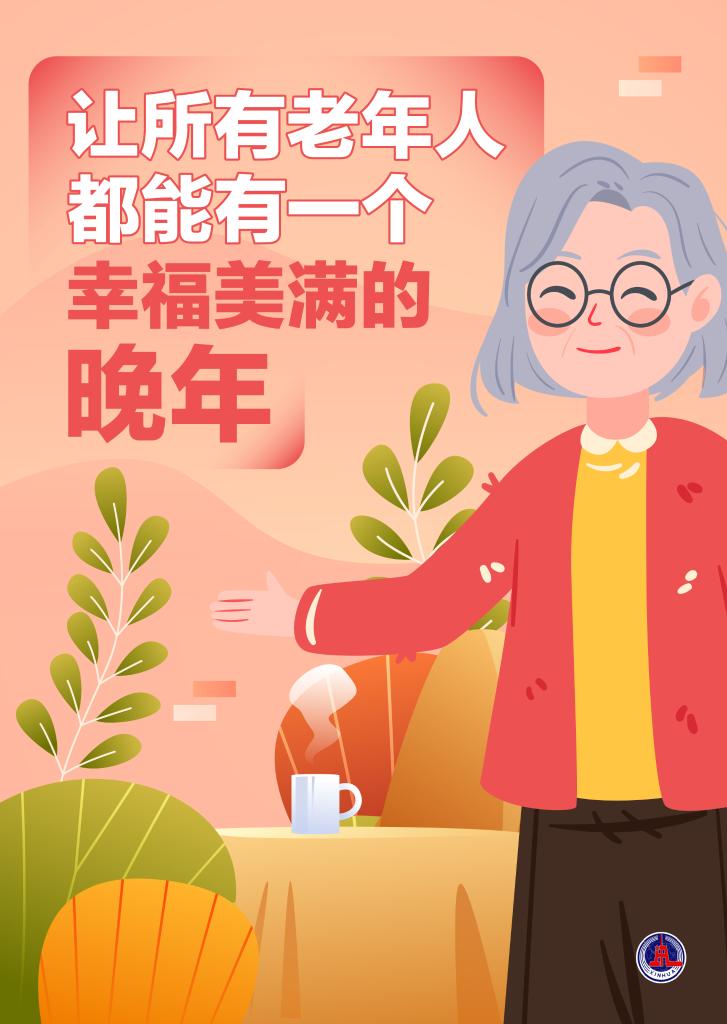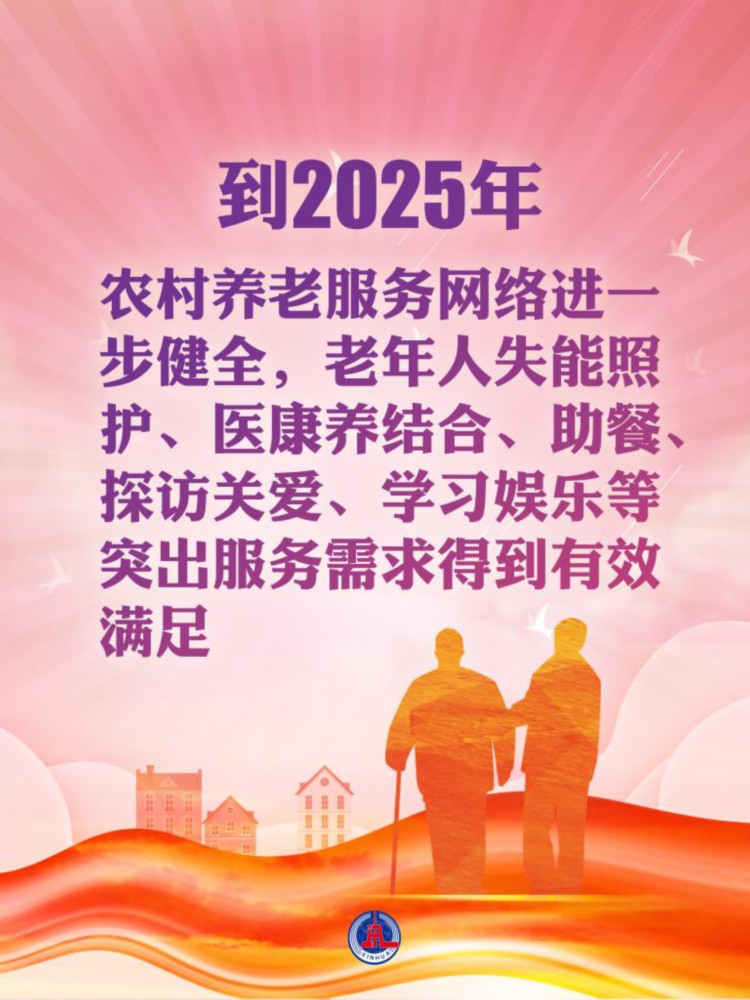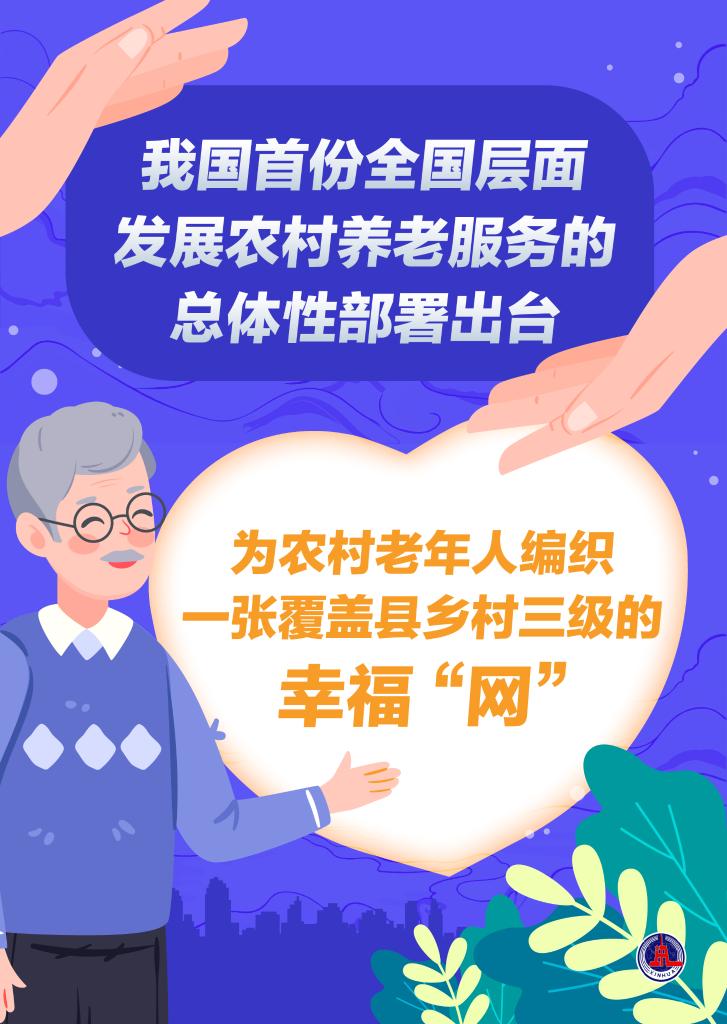respect seniors.
The Guiding Opinions on Accelerating the Development of Rural Elderly Care Services issued by the Ministry of Civil Affairs in conjunction with 21 departments was released on June 13. This is the first overall and systematic deployment for the development of rural elderly care services at the national level.
Let all the old people have a happy old age.

The latest statistics show that the population aged 60 and above in China has exceeded 296 million. The elderly population base is large and the aging rate is fast, so the demand for old-age care is growing rapidly.
In January this year, the Office of the State Council issued the Opinions on Developing the Silver Hair Economy and Improving the Welfare of the Elderly. This programmatic document promoting the development of the silver hair economy in the new era proposed 26 measures in four aspects, covering many aspects such as clothing, food, housing, elderly care and health management of the elderly.
Compared with the centralized resources and mature market of urban elderly care services, the current situation of elderly care in rural areas is more urgent, with more prominent problems, and faces many "obstacles".
First, there are many old people. With the development of economy, more and more young people are working and developing in cities, and the phenomenon of empty nest of rural families is constantly emerging. Nationwide, the proportion of rural elderly aged 60 and above is 23.81%, 7.99 percentage points higher than that of urban elderly.
The second is that there are few services. There are 16000 rural nursing homes and 1681000 beds in China. There are about 145000 rural mutual aid elderly care service facilities, but the convenience and accessibility of services need to be improved due to the scattered living of the elderly.
In view of the current situation of "more" and "less" for rural elderly care, the opinion sets the goal——
By 2025, the rural elderly care service network will be further improved, and the outstanding service needs of the elderly, such as disability care, combination of medical care and health care, catering, visiting care, learning and entertainment, will be effectively met.

How to achieve this goal?
The opinion weaves a happiness "net" covering three levels of county and village for the rural elderly.

At the county level, each county will have at least one county-level special hardship case support service agency focusing on disability care by 2025. These institutions also need to take charge of coordinating elderly care resources and carrying out elderly care talent training.
At the township level, more regional elderly care service centers that can provide services such as full day care and daytime care will be established. By 2025, the service coverage of such service centers will generally not be less than 60% of the province.
At the village level, increase elderly care service points. Here, the elderly can have a hot meal, see a doctor for a minor illness, ask someone to buy daily necessities, and strive to meet the daily needs of the elderly in rural areas without leaving the village or leaving their hometown.
What supports this "net"?
The opinion proposed that "stimulating endogenous power" and "strengthening support and guarantee" should go together.
China's countryside is an acquaintance society, with close interpersonal relationships, and villagers are enthusiastic about mutual assistance and reciprocity.
At present, various places have made beneficial explorations around giving play to the enthusiasm of village collectives and villagers to participate in elderly care services.
Some villages set up a "happy courtyard" by "getting a little pension for the elderly, offering a little for their children, giving a little for the village collective economy, donating a little for social forces, and striving for a little compensation from their superiors";
Some villages have set up "point banks" to help deliver meals and clean up. The points saved can be exchanged for goods or services.
The opinions absorbed the exploration experience of all parties and strengthened support.
For example, villagers use their own houses or leased sites to set up elderly care service institutions, and their opinions are required to help improve the safety level of fire protection, buildings, food, etc; Young healthy elderly people and rural left behind women are encouraged to form rural mutual aid service teams for the elderly. Relevant personnel who participate in skills training can also receive vocational training subsidies.
"Strengthening the support and guarantee" is to make up for the weak points in the short board.
Where is the elderly care service station built? The opinions put forward that the land use policy should be improved, and the rural elderly care service facilities should be included in the township level land space planning or village planning.
Where does the money come from? In addition to making it clear that the government "holds the bottom", the opinion also encourages state-owned or private enterprises to operate elderly care service facilities in rural areas, and financial institutions strengthen support.
Let the elderly become "enjoy the old". It should be pointed out that there are still some problems restricting the rural elderly care service in China. With the implementation of this overall plan and the joint efforts of the whole society, the "network" of pension happiness will become more and more dense, and the sunset red scroll will become more beautiful.





